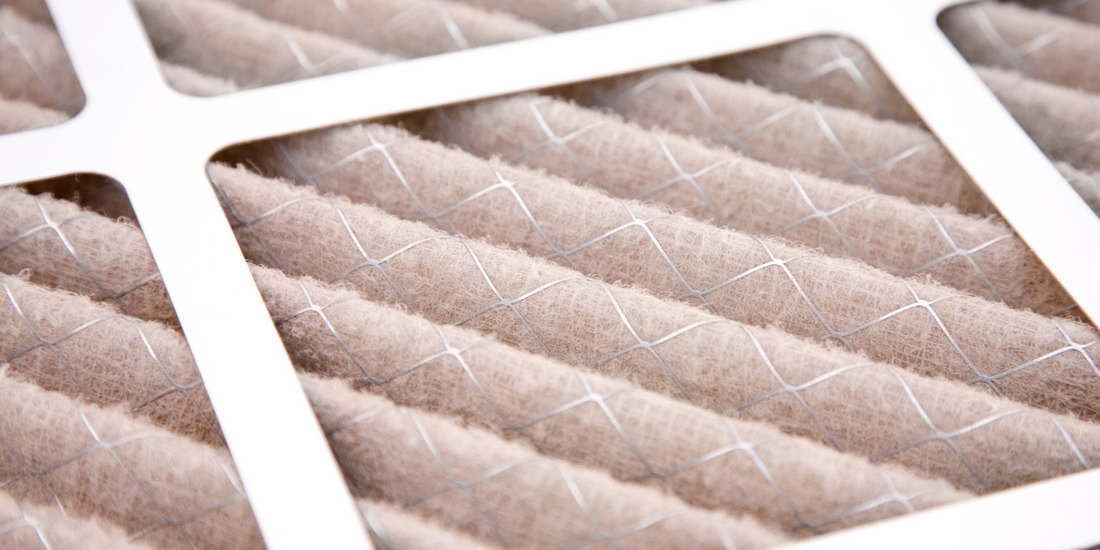
Improving Indoor Air Quality with MERV and HEPA Filtration
Share
Understanding Indoor Air Quality
What is Indoor Air Quality?
Indoor air quality refers to the cleanliness of the air within and around buildings and structures, particularly as it relates to the health and comfort of the building's occupants. Poor IAQ can lead to various health issues, from minor irritations like allergies and headaches to serious conditions such as respiratory diseases and heart problems.
Common Indoor Air Pollutants
Indoor air pollutants come from various sources, including:
- Biological Pollutants: Mold, mildew, bacteria, viruses, dust mites, and pet dander.
- Chemical Pollutants: Volatile organic compounds (VOCs) from paint, cleaning supplies, and building materials; pesticides; tobacco smoke; and combustion byproducts from stoves and heaters.
- Particulate Matter: Dust, dirt, and other tiny particles that can be inhaled.
The Importance of Air Filtration
Proper air filtration is essential in maintaining good indoor air quality. Air filters are designed to remove particles and pollutants from the air, ensuring a cleaner, healthier environment.
MERV and HEPA Filtration: Key Players in Air Filtration
What is MERV?
MERV (Minimum Efficiency Reporting Value) is a rating system used to evaluate the efficiency of air filters. The MERV scale ranges from 1 to 20, with higher numbers indicating greater filtration efficiency.
- MERV 1-4: Basic filtration, captures large particles (10 microns or larger).
- MERV 5-8: Intermediate filtration, captures medium to large particles (3-10 microns).
- MERV 9-12: Superior residential filtration, captures smaller particles (1-3 microns).
- MERV 13-16: Hospital-grade filtration, captures very small particles (0.3-1 micron).
- MERV 17-20: Ultra-high efficiency, captures the smallest particles (0.3 microns or smaller), often used in cleanrooms.
What is HEPA?
HEPA (High-Efficiency Particulate Air) filters are a type of air filter that meets specific efficiency standards set by the U.S. Department of Energy. To qualify as HEPA, a filter must remove at least 99.97% of particles as small as 0.3 microns. HEPA filters are widely used in environments where air quality is crucial, such as hospitals, laboratories, and cleanrooms.
Comparing MERV and HEPA Filters
Efficiency and Particle Size
- MERV Filters: While high-MERV filters (MERV 13-16) can capture smaller particles effectively, they generally do not reach the efficiency level of HEPA filters.
- HEPA Filters: Known for their exceptional ability to capture ultrafine particles, HEPA filters are the gold standard in air filtration.
Applications
- MERV Filters: Ideal for residential and commercial settings, offering a balance between efficiency and airflow resistance.
- HEPA Filters: Best suited for environments requiring the highest level of air purity, such as medical facilities and cleanrooms.
Airflow Resistance
Higher efficiency filters, including high-MERV and HEPA filters, can create more resistance to airflow. This can potentially reduce the efficiency of HVAC systems if not properly accounted for. It’s essential to ensure that your HVAC system can handle the filter type you choose.
Tips for Improving Indoor Air Quality
1. Choose the Right Filter
Select a filter with an appropriate MERV rating for your needs. For most homes, a MERV 8-12 filter provides good filtration without excessive airflow resistance. If you have allergies or asthma, consider a higher MERV rating or a HEPA filter if your system can accommodate it.
2. Regularly Replace Filters
Air filters should be replaced regularly to maintain their efficiency. Check the manufacturer's recommendations and replace filters at the suggested intervals. For homes with pets or in areas with high pollution, more frequent replacements may be necessary.
3. Maintain Your HVAC System
Regular maintenance of your HVAC system ensures it operates efficiently and effectively. Schedule annual inspections and cleanings to keep your system in top condition.
4. Use Air Purifiers
Portable air purifiers with HEPA filters can be an excellent addition to your home, especially in rooms where you spend a lot of time, such as bedrooms and living rooms.
5. Control Humidity Levels
High humidity can promote the growth of mold and mildew, while low humidity can cause dryness and irritation. Maintain indoor humidity levels between 30-50% using dehumidifiers or humidifiers as needed.
6. Reduce Indoor Pollutants
- Ventilation: Proper ventilation is crucial. Use exhaust fans in kitchens and bathrooms and open windows when weather permits.
- Cleaning: Regularly clean your home to reduce dust and other particulates. Use a vacuum with a HEPA filter to capture fine particles.
- Limit Chemical Use: Opt for low-VOC or VOC-free products when possible. Store chemicals and cleaning supplies in well-ventilated areas or outside the living spaces.
7. Monitor Indoor Air Quality
Consider using indoor air quality monitors to keep track of pollutant levels in your home. These devices can help you identify and address potential issues promptly.
The Last Word
Improving indoor air quality is essential for maintaining a healthy and comfortable living environment. Understanding the roles of MERV and HEPA filtration can help you make informed decisions about the best filtration options for your home. By following the tips outlined in this post, you can significantly enhance the air quality in your indoor spaces, contributing to better health and well-being for you and your family.
If you have an existing Vents-US product and would like explore our selection of IAQ filters, click here. If you'd like more information, contact us sales@vents-us.com or call 1-833-878-3687.
Thanks for reading,
The Vents-US Team
